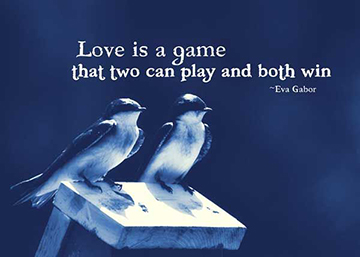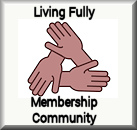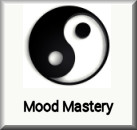I am hearing lots of client’s anxieties right now and seeing the tyranny that this has in people’s lives. I am also remembering a segment from Wayne Dyer’s audio, “It’s Never Crowded Alnong the Extra Mile.” He was talking about a Peace Pilgrim who had inspired him. Here are the 10 symptoms of inner peace that you can look at and measure your life against. If you find yourself lacking in an area, choose one or two to work on. As usual put them in your calendar and on stickies around your life (mirrors, speed indicator in your car etc.). Evaluate yourself daily – how did I do in making this happen from one (in a puddle on the floor to ten (the best you can imagine). If this resonates with you, make the change happen for real. You will impact not only yourself and your relationships but have a positive influence on your whole world. 
10 Symptoms of Inner Peace
1. A tendency to think and act spontaneously rather than on fears based on past experiences
2. An unmistakable ability to enjoy each moment
3. A loss of interest in judging other people
4. A loss of interest in interpreting the actions of others
5. A loss of interest in conflict
6. A loss of the ability to worry
7. Frequent, overwhelming episodes of appreciation
8. Contented feelings of connectedness with others and nature
9. Frequent attacks of smiling
10. An increased susceptibility to the love extended by others as well as the uncontrollable urge to extend it
Be this person. Go forth and be wonderful!


 Being in the middle of a criticism contempt loop is so hard on couples. Gottman’s research shows that it is a direct cause of the break up of a relationship. The party who is the “criticizer” feels so justified and will often ask friends to affirm their thoughts and feelings. They have amassed a story that makes the other person unworthy to be alive and they may make a psychological diagnosis for their partner (my favorite). Their partner in return becomes defensive and then depending on their attachment style, avoids their partner, leaves the situation or moves in to the relationship intensely to ‘prove’ they are not that person. And the loop goes on.
Being in the middle of a criticism contempt loop is so hard on couples. Gottman’s research shows that it is a direct cause of the break up of a relationship. The party who is the “criticizer” feels so justified and will often ask friends to affirm their thoughts and feelings. They have amassed a story that makes the other person unworthy to be alive and they may make a psychological diagnosis for their partner (my favorite). Their partner in return becomes defensive and then depending on their attachment style, avoids their partner, leaves the situation or moves in to the relationship intensely to ‘prove’ they are not that person. And the loop goes on. not easily accessed. Our friends from childhood and the memories of our childhood are often distant too. It is important to our health as a couple that we find a way to touch our roots and to make new roots when we need to. When we are not connected and try to be everything to each other, it does not work well. Marriages need a social circle with rituals that we can count on. We need to keep in touch with our families by phone or skype. Make trips both ways to connect with each other. Taking this seriously affects our mental health in every way. It affects our chemistry. Touching someone you love reduces pain. With married couples, the stronger the marriage, the more powerful the effect. There is so much research to help us take this seriously. For instance, five hugs a day for four weeks increases our happiness. When researchers put people in a stressful situation and then let them visit loved ones or talk to them on the phone or in person, they felt supported and their bodies responded as they reported that they felt better. And if you think that texting works the same, apparently not. In this research, they also had people texting their loved ones. If they texted, their bodies responded biologically as if they had no support at all. As I have blogged about before, connecting has huge health benefits all around.
not easily accessed. Our friends from childhood and the memories of our childhood are often distant too. It is important to our health as a couple that we find a way to touch our roots and to make new roots when we need to. When we are not connected and try to be everything to each other, it does not work well. Marriages need a social circle with rituals that we can count on. We need to keep in touch with our families by phone or skype. Make trips both ways to connect with each other. Taking this seriously affects our mental health in every way. It affects our chemistry. Touching someone you love reduces pain. With married couples, the stronger the marriage, the more powerful the effect. There is so much research to help us take this seriously. For instance, five hugs a day for four weeks increases our happiness. When researchers put people in a stressful situation and then let them visit loved ones or talk to them on the phone or in person, they felt supported and their bodies responded as they reported that they felt better. And if you think that texting works the same, apparently not. In this research, they also had people texting their loved ones. If they texted, their bodies responded biologically as if they had no support at all. As I have blogged about before, connecting has huge health benefits all around.




